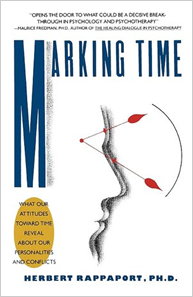As a thinking partner to senior management, with over 25 years of experience, Dr. Herbert Rappaport uses a customized top-down systems approach to organizational consulting. In the role of trusted advisor with founders and CEOs, Herb’s “insider-outsider” position provides the access and perspective necessary to assess and intervene in organizational culture, facilitate restructuring and succession planning, diffuse and mediate conflict, and serve as an innovative teacher to emerging and existing leaders. Herb has had significant success working with leaders as they build the new perspective and capability necessary to improve both their personal and organizational performance. In all engagements, Herb challenges leaders to drive for tangible results.
As with his private practice, Dr. Rappaport’s approach to working with business clients is not formulaic. Every founder or leader is seen as having a unique blend of strengths and weaknesses which are embodied in the character and culture of an organization. Just like families, organizations are seen by Dr. Rappaport as characterized by issues around power, rivalry, secrecy, ritual and the counter-productivity associated with unnecessary conflict and stress.
Clients
Herb works with organizations in diverse industries ranging from large manufacturing to financial services, insurance, publishing, healthcare, and architectural firms. Representative clients include The Hillier Group; Hirtle and Callaghan, Inc.; Keane Tracers, Inc.; The Perseus Publishing Group; Walter Kidde Corp.; Northwestern Mutual Life; The National Institute of Mental Health; Scott Paper Co.; World Health Organization; Radpharm, Inc.; Tyco International; West Capital Investment Co.; Drexel Morgan Capital Advisers.
Representative Engagements
- Preparing the Next Generation to Lead: A large financial services firm had plateaued. Its leadership was graying and no surging generation of leaders was poised to move the business forward. With Herb’s guidance, the President and senior team conducted an internal talent search to identify their high potentials. Herb designed a leadership development seminar series, involving case analysis and individual coaching. Over time, the firm augmented its leadership team with seminar graduates. Grooming the next generation and bringing them to the leadership table vitalized the business, resulting in a restructuring and a doubling in size.
- Achieving a Personal 180: The board of directors of a media company attributed the company’s slump to the VP of Sales. Plans to replace the executive were forming when Herb engaged the VP in a situation assessment and course correction. With insights formed by 360 feedback from peers and subordinates, the VP’s initial resistance gave way to a true quest for turnaround. The VP came to understand the power of understanding and thinking strategically about a diverse set of direct reports and peer relationships and developing different approaches to managing each relationship. He was able to integrate feedback and data on personal strengths and weaknesses to develop a new leadership profile that drives business goals and aligns with cultural expectations. Two years later, sales is back on track, trust levels are up, and the VP is seen as model of good leadership.
- Navigating Through Succession: Herb’s long and close advisory relationship with the CEO and founder of a large architectural firm took on a new dimension when the organization faced a new ownership structure. To ensure the senior team understood the issues and were fully prepared for the merger, Herb facilitated a series of meetings focused on strategy, leadership, and culture change.
- Forecasting and Managing Resistance: A global energy company’s projects were too often sidetracked by resistance from local town and planning boards. Herb worked with project leaders to proactively strategize issues that might surface in a given community, plan responses, and build time and budget into project plans to address possible detours. Armed with a better understanding of a community’s issues, project teams developed a more inclusive perspective that turned potential community combatants into problem-solving partners.



